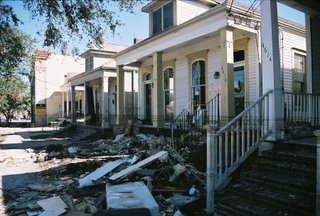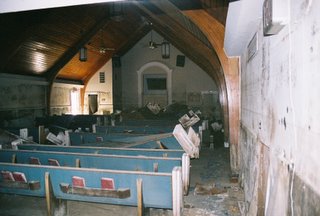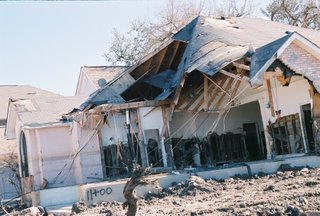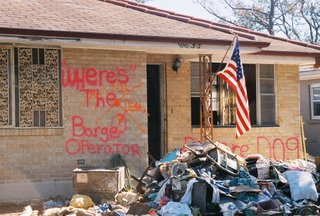Check out
Dr. Jim Walton's most recent post on his weblog:
http://www.institutedallas.blogspot.com/.
You will be challenged by his words. Dr. Walton is a dear friend and our chief partner here in Dallas in community-based health and wellness delivery. I urge you to make his blog a regular "watering hole" for your soul!
________________________________
Uncle Sam needs you to enlist in a national effort to stop “budget reconciliation” by contacting your congressional representative and senators.
The
Center for Public Policy Priorities has prepared a short message to explain how very much is at stake for low-income Americans in this battle.
To view the message and read the helpful report go to
http://www.cppp.org/research.php?aid=477.
The time to act is from today and continuing through next week.
________________________________
For those who don't mind reading the report in this post format, the entire message/analysis is copied below for your convenience. Please read and take action!
SPECIAL CPPP MESSAGE ON FEDERAL BUDGET RECONCILIATION
Uncle Sam needs you to enlist in a national effort to stop "budget reconciliation." By now, you have probably heard about something about this, but may have not have been motivated to do anything. The goal of this short message is to explain how very much is at stake for low-income Americans in this battle.
Before the Thanksgiving recess, both the Senate and the House passed so-called budget reconciliation bills. Over five years, the House would cut $50 billion, and the Senate would cut $35 billion.
While the House bill makes significant cuts in key supports for low-income families, the Senate bill achieved its budget savings without cutting services and supports for low-income Americans.
As part of budget reconciliation, each chamber is also working on a bill to cut taxes. The Senate has already passed a $59.6 billion tax cut bill, and the House will vote on its $56.1 billion tax cut bill when it returns on December 5.
Because the tax cuts are larger than the spending reductions, both the House and Senate are proposing to increase, not decrease, the deficit. As we will explain, this is all about tax cuts paid for by low-income Americans.
What is budget reconciliation?
"Budget reconciliation" is a way that Congress can make big changes in federal taxing and spending outside the normal process. Congress does this through special budget reconciliation rules, one of which is that the bill cannot be filibustered in the Senate and thus only takes a simple majority to pass.
Why should we care?
Because Texas [and every other state--blog editor's note] relies so heavily on federal funding, and has so many low-income people who rely on federal programs, any cuts to the federal budget have a particularly significant effect on our [your] state.
To make this real, consider the consequences of passing the House bill, which finances tax cuts by cutting services for low-income Americans.
Medicaid: The nonpartisan Congressional Budget Office (CBO) estimates that provisions to increase what Medicaid beneficiaries pay out-of-pocket will reduce their use of health care services, and that new premiums authorized in the bill will result in more than 100,000 beneficiaries losing Medicaid. CBO projects nearly $30 billion in savings over ten years due to reduced utilization of services and decreased enrollment.
Also under the House bill, the federal government would no longer require that states provide children just above the poverty line with comprehensive preventive care and treatment. Near-poor children could lose coverage for such services as eyeglasses, hearing aids, dental care, speech therapy, and crutches. Over 10 years, the House bill has net Medicaid cuts of $43.7 billion, nearly 3 times the $14.7 billion cut in the Senate bill.
The Senate bill achieves savings in the Medicaid program, but does so without either increasing premiums or co-payments on low-income beneficiaries, or reducing the level of health care services covered by the program.
Child Support Enforcement: CBO estimates that under the House bill’s 40% reduction in enforcement spending, child support payments made by non-custodial parents would be $24 billion lower over ten years (an estimated $1.25 billion in lower payments for Texas children). (No Senate cut.)
Food Stamps: CBO estimates indicate that under the House bill more than 220,000 people a month would lose food stamps; mostly people in low-income working families. In Texas, the House proposal is expected to cut off benefits for at least 36,000 persons, and there are indications that the impact could be significantly higher. (No Senate cut.)
Child-care subsidies: Child care would be eliminated for 330,000 children in low-income working families under the House bill. The House bill requires states to place many more parents receiving cash assistance under the TANF program into full-time work programs, but fails to provide enough child care money even to maintain the current number of subsidized child-care slots for low-income families. The CBO estimates that another $12.5 billion in child care would be needed nationwide to match the increased work requirements, but the bill provides only $500 million. As a result, states would have to shift child-care slots from working poor families (those not on TANF cash assistance), to families that receive cash aid (from TANF) and are participating in work programs. (No Senate cut.)
Student Loans: The House budget cuts $14.5 billion from student loans, and student groups estimate the cuts will result in an average increase of $5,800 in students' loan payments. The Senate bill calls for $18 billion in cuts to student loans, but reinvests $11 billion of its savings into student financial aid, including $8 billion in new spending for the Pell Grant program, for a net cut of $7 billion.
Does Congress have to pass budget reconciliation?
No. Budget reconciliation is outside the normal process of taxing and spending. Congress does not have to do it. If the reconciliation bills do not pass, the federal government would still have a "budget" and could continue to operate. In fact, the best outcome would be for both parts of budget reconciliation (both the tax cuts and the spending cuts) to be defeated.
But doesn’t Congress have to pass budget reconciliation to pay for the hurricanes or to control the federal deficit?
No. Congress was planning budget reconciliation before the hurricanes. Any money "saved" from spending cuts would not go for either hurricane relief or deficit reduction. Instead, the spending cuts in reconciliation would pay solely to offset part of the cost of the tax cuts in reconciliation. (Over three-quarters of these tax cuts benefit households with incomes over $100,000.)
Among the most controversial of the tax cuts proposed is an extension through 2010 of capital gains and dividends tax breaks, currently set to expire in 2008. The House tax cut bill contains the two-year extension of the reduced rate, a maximum of 15% on both capital gains and dividend income. The Senate bill removed this extension in order to win moderates’ votes, but Senate conservatives vow to return the extension to the final bill in conference committee.
Extending these two tax cuts through 2010 would cost about $21 billion, 86% of which will go to households with incomes over $100,000, and nearly half (45%) of which will flow to the 0.3% of U.S. households with incomes over $1 million. See http://www.cbpp.org/11-17-05tax.htm .
We need a reasonable plan to control the deficit, but budget reconciliation is not it. After budget reconciliation is defeated, responsible people can start work on deficit reduction.
But don’t we need the tax cuts to stimulate the economy?
No. Most economists do not think these tax cuts would have any positive short-term effect on the economy, and the harm from increasing the federal deficit would largely offset any theoretical positive long-term effect. For more, see http://www.cbpp.org/11-17-05tax.htm . In any case, if we need tax cuts, we should not pay for them out of programs for the poorest among us.
So what is the answer to the deficit?
First — don’t dig the hole deeper. Congress needs to halt unaffordable tax cuts that have not taken effect and not approve further tax cuts that benefit the most advantaged Americans, including an extension of the capital gains and dividend tax cut.
The cost of the tax cuts Congress enacted in 2001 and 2003 was $225 billion this past year. In other words, the cost of the tax cuts in a single year exceeds the total anticipated costs of all expenses related to the Hurricane Katrina over the years to come.
Two tax cuts passed in 2001, but set to take effect in January of 2006, would eliminate the current upper limits on personal exemptions and on itemized deductions for people at high incomes. 97% of these tax cuts would go to Americans with incomes of $200,000 a year or higher.
Congress first put in place these upper limits for the wealthy as part of 1990 deficit reduction. In the first 10 years when these tax cuts are in full effect, they will cost $197 billion in lost revenue and interest payments on the debt. Canceling this scheduled tax cut now would more than pay for a strong relief and rebuilding program, without requiring cuts to programs like Food Stamps and SSI.
Addressing the nation’s deficit will require not only changes in revenues, but also spending reductions. Spending cuts should not target low-income Americans while sheltering special interests.
Reducing the deficit will required true shared sacrifice, including both revenue increases and spending cuts that are applied fairly.
Unfortunately, this year’s budget reconciliation process is not about shared sacrifice or deficit reduction — it increases the deficit while asking those with the least to make significant sacrifices in the name of fiscal responsibility.
For more, see http://www.cbpp.org/9-19-05tax.htm and http://www.cppp.org/files/6/Backgrounder.pdf .
What happens next?
Congress started an extended Thanksgiving recess November 21, and will be returning December 5 in the House and December 12 in the Senate. The leadership will appoint spending bill conferees when each chamber resumes action. However, it is likely that key leadership will negotiate many major decisions behind the scenes even before naming the conferees. A "conference report" (House-Senate compromise bill) could be completed as early as the week of December 12.
What do you want us to do?
Visit, write, e-mail, or phone your congressional representative and both Texas [your senators] opposing 1) spending cuts to programs for low- and moderate-income Americans and 2) tax cuts for upper-income Americans.
The time to act is the week of December 5, continuing through the following week. Concerned citizens are planning a "national day of action" for December 13. Also, ask your friends and networks to participate.
Since we are from Texas, does it really matter what we do?
Yes! Spending cuts passed the House by only two votes, and the Senate plan is vastly superior to the House plan. Telling your representative to back off and urging your senators to hold firm are critical messages. If budget reconciliation isn’t defeated outright, our Texas senators may be particularly important in ensuring that the more moderate Senate plan is accepted. The Senate avoids direct Medicaid cuts for beneficiaries, spreads the sacrifice across programs, and does not cut programs like Food Stamps, child care, child support enforcement, or SSI for elderly and disabled poor.
Where can we find contact information for our representatives and Senators?
Senator Kay Bailey Hutchison (202) 224-5922, http://hutchison.senate.gov/e-mail.htm.
Senator John Cornyn (202) 224-2934, http://www.cornyn.senate.gov/contact/index_1.html.
To find and contact your congressional representative go to www.house.gov.
If you join the fight to stop budget reconciliation, your Uncle Sam will appreciate you.






















